He’s been referred to as the “father of Lan Kwai Fong,” setting up the stepping stones to Hong Kong’s famous nightlife culture phenomenon.
Welcome to the Human Stories series by TMS, where we get to know Hong Kong through its many different faces. This weekend, we’re featuring Allan Zeman, entrepreneur and founder of Lan Kwai Fong Group.
It’s hard to write an introduction for one of Hong Kong’s most prominent figures. He’s been referred to as the “father of Lan Kwai Fong,” setting up the stepping stones to Hong Kong’s famous nightlife culture phenomenon. His accomplishments as the previous chairman of every Hong Kong child’s favorite theme park, Ocean Park, earned him the title of “the mouse killer,” crushing competitor Hong Kong Disneyland’s business figures. He is the director of the Star Ferry company, is involved in Hong Kong government services, and throughout his years in the metropolis, he’s won dozens of prizes for his many contributions. In his 52 years in Asia’s World City, there hasn't been much of notable local business culture that Canadian-born Allan Zeman hasn’t touched.
But meeting him in his office, we quickly come to learn that Zeman is not quite like what you’d think a business mogul in one of the world's most cutthroat cities would be like. In short, Zeman exudes humility and calm.
His office is tastefully decorated, with stacks of books and works of art adorning surfaces, and the air smells of a sophisticated, clean fragrance. He leads the TMS team to the conference room neighboring his main office. Once again, books, awards and art pieces pepper the space. Notably, behind a couch hangs a giant digitally-rendered portrait of Zeman himself as Lord Voldemort, a fun advertisement he had done previously for a video game company. His eyes glitter as he notices our delight at his ability to laugh at himself.
As we get everything set up to begin, Zeman waits patiently, asking questions and making conversation. And once all is ready, with a light inhale, he begins to recount the story of his life.
The young hustler
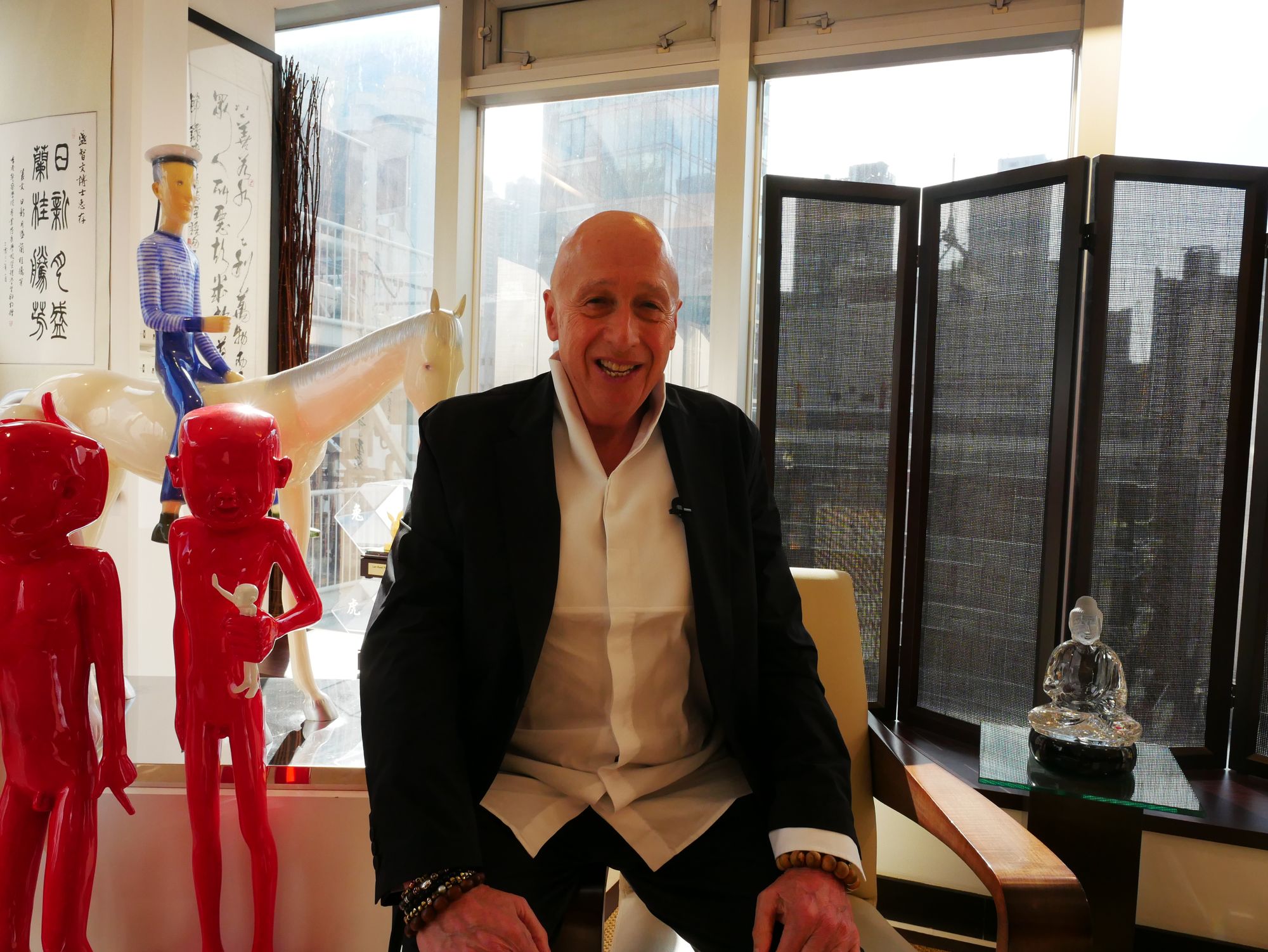
Zeman began his career shortly after the death of his father. Coming from a humble family, he quickly realized the importance of money and how willing he was to make it. The sudden-made breadwinner of the family threw himself into the world of labor as a morning newspaper boy at the young age of 10. Two years later, he decided to add cleaning tables as a busboy to his weekends. For young Zeman, these two jobs combined racked up a hefty $50 a week, earning him more than even his teachers at the time. And he was hooked.
“I never really liked to study,” Zeman admits. “When I was 17, I graduated from high school … I had marks to go to university but I didn’t want to be a professional, like a doctor or a lawyer. I wanted to be an entrepreneur.” So the books he decided to hit were the classifieds. Among the pages, he found a job as a lingerie shipping clerk. “Now, to a 16-year-old, I didn’t know what shipping clerk meant,” he chuckles. “But I knew what lingerie meant!”
From this job, he observed his next goal – the salesmen earning themselves commission checks at the end of the month – so that became what he wanted to do. Once again, a flick through the classifieds and a year later, he found himself as a showroom salesman for the largest Canadian dress company at the time. He bluffed his way through the interview, feeding HR whatever they wanted to hear. Experience? Yes. Knowhow? Of course! Expertise? How could you even question it? When could he start? “I’ll call you back in the morning,” he would reply, hoping not to seem too desperate. A sleepless night later brought him to confirm his next gig and a salesman he became. “I watched what other salesmen did, and I learned very quickly,” he says. “I was traveling with everybody’s father because all the kids were in school.”
Racking up a large sum of money already, Zeman decided he wanted to start his own company at 19. He shares with us insight into his personal ideology. “My philosophy was, if somebody else can do something, why can’t I?” And with his previous experiences, he determined that the business would be in ladies’ import.
Stepping into the small city
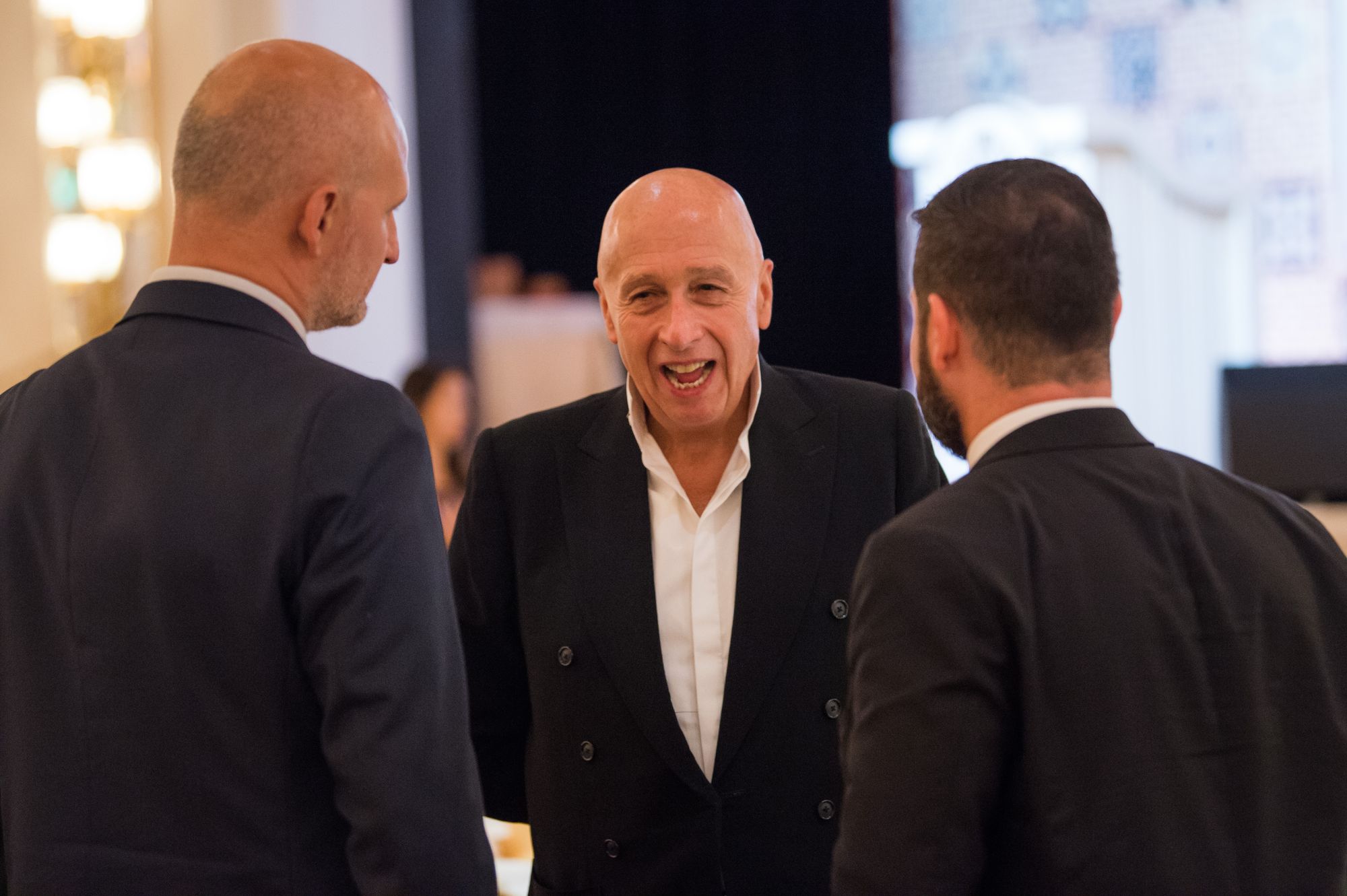
Zeman first set foot in the factory-booming, industrial city of Hong Kong during the first year of starting his company. Ladies’ sweaters were what the company honed in on. Although the article of clothing was not a popular one at the time, working with a designer, they created sweaters adorned with tie-dyes and embroidery. And they sold like hotcakes.
Learning on the job, Zeman found that Hong Kong’s taxes were a meager 15% instead of the heavy tax upon tax that needed to be paid in Canada. “A bright light went off in my head,” he said. “How many years ‘til I make a million?” The plan was that he would move to Hong Kong, make money and move back to Canada. But we all know how that played out.
“I loved it from the first moment I arrived,” he said. “I loved the energy, I loved the people. In those years, some people were still riding bicycles without their shirts on ... There was a real can-do spirit here. Everything was happening.” He set up a trading company, Colby International Group, in the city, starting from one office and slowly, over 15 years, growing it to 32 offices around the world. He built it up to be the second-largest trading company in Hong Kong after Li and Fung, eventually selling it to them for profit.
The father of Lan Kwai Fong
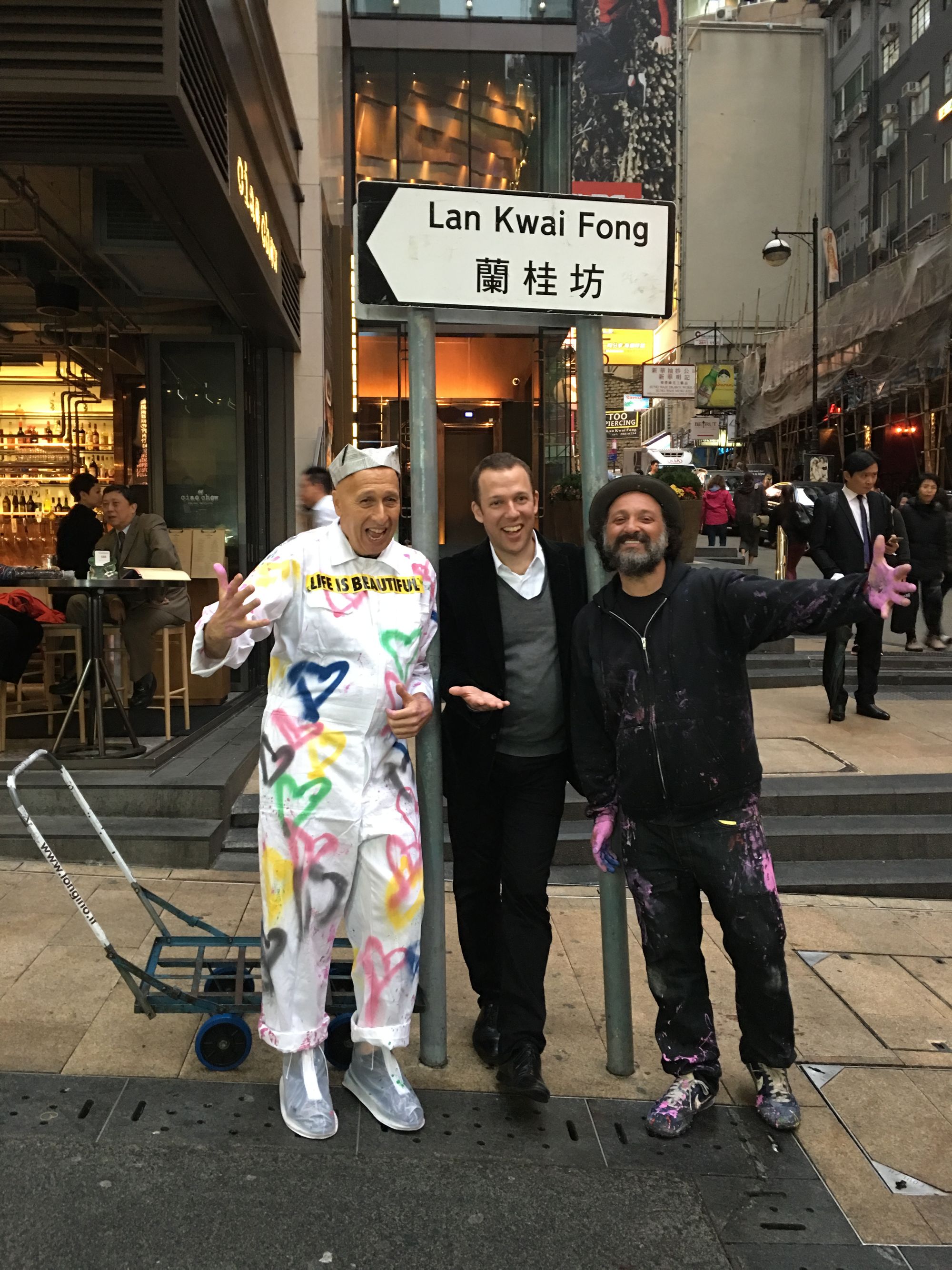
Lan Kwai Fong (LKF) came from a love story. Not Zeman’s, but one of his staff members – a young expat designer who wanted to move back to the States to be with her restaurant-running boyfriend. “Instead of you going back to the States, bring him back here. We’ll open a restaurant,” Zeman proposed to her in an attempt to keep her talent. And that was how Lan Kwai Fong was born.
Among the matchmakers, old warehouses and flower stores of old Lan Kwai Fong, Zeman bought his first building, and within those walls filled it with restaurants, bars and clubs. At the time, no one knew about his new project. “I also thought Hong Kong really needs a place where people can come and release their energy. A meeting place. You know, every great city in the world has an area like Lan Kwai Fong,” he says. He goes on to explain that back in the day, while under British rule, due to a lack of casual street restaurants, going out for dinner meant donning a suit jacket and tie and heading to a formal hotel restaurant. With designers coming into the city for work, Zeman now had a place where he could host them.
He reminisces about one of the first Halloweens in the Lan Kwai Fong area. “Nobody knew what Halloween was all about, and a few of the ‘gwai los’ dressed up in costumes on Halloween ‘cause we all grew up with it,” he remembers with a smile. That year, the locals watched on, wondering what the event was all about and the cause of the commotion. But the year after, the previously curious ones happily joined in and, over time, Halloween became as much of a holiday to them as it is in the States.
Ocean Park and exterminating the mouse
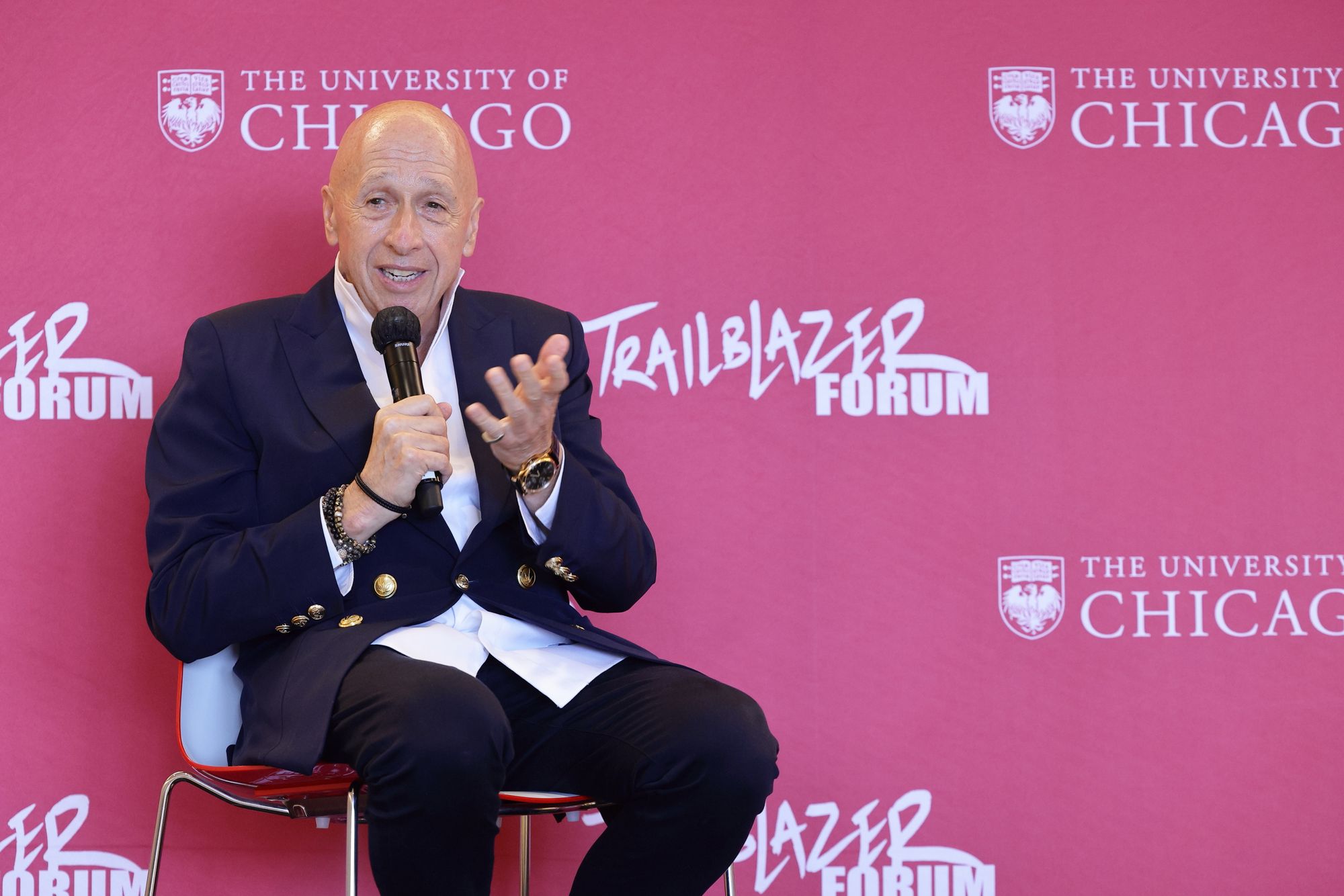
Shortly after the handover in 1997, Zeman got a call from Hong Kong’s chief executive at the time, Tung Chee-hwa. Ocean Park was losing money, and Disneyland had plans to come to Hong Kong. Some suggested selling the park off for housing, others wanted to keep it, but no one could come to a consensus about what to do.
Zeman’s observation of the park was simple – it was falling apart. “I always say, ‘I look at things not for what they are. I look at things for what they could be.’ So those entrepreneurs are really people who can see things different than other people do. They look at things with a different slight angle,” he says. “I saw beauty in the park, even though it was old and falling apart.”
Zeman called the chief executive back with a deal that he would take over the park, but only if he would support him. With Tung’s promise, Zeman took over, even with a lack of knowledge of theme parks.
He made his first step to set up a good management team, and from there on, he gathered resources so that he would learn. Partnering up with a newly appointed CEO, Tom Mehrmann, as well as several theme park designers from the US, Zeman and his management team revamped the park. “If you're really going to get it going, do it first class. I’ve always said that,” he says.
The new restructuring of the park cost HK$5.55 billion (around US$700 million), but it was all worth it. The new park took off. “I really understood the Hong Kong culture,” Zeman says. “Parents grew up with Ocean Park; grandparents grew up with Ocean Park, children growing up with Ocean Park. It was an icon that was really ‘made in Hong Kong.’” With Disney being an imported concept, Zeman knew deep down that Ocean Park had the edge, from food all the way to culture.
Do you have what it takes?
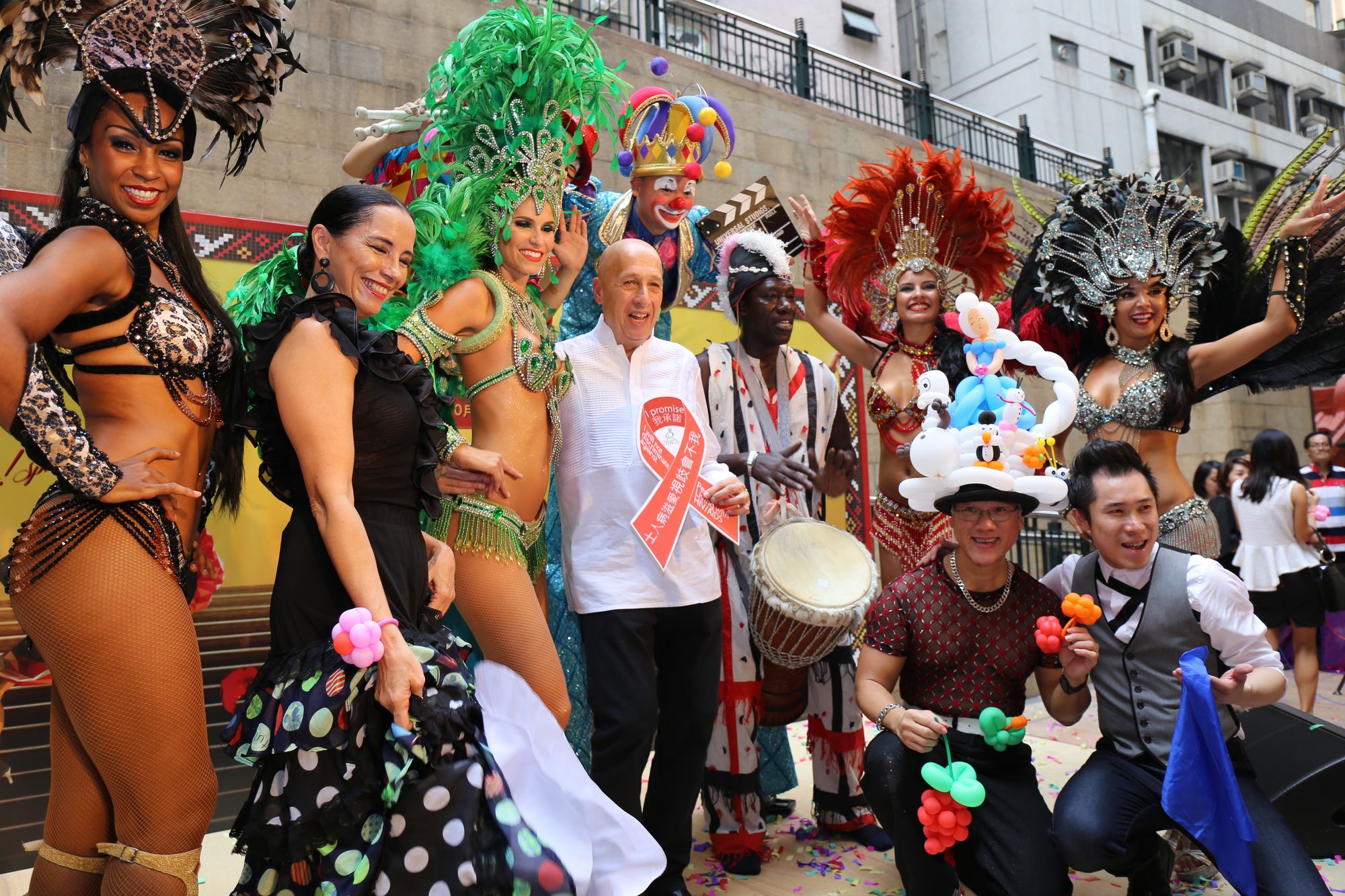
“I always tell young graduates, follow your dream, follow your heart. Don't listen to your parents,” he says jokingly. But he further explains the truth behind his quip – if you love what you're doing, then you’ll be good at it. However, the opposite is true too, whereby if you don't do what you love, you will end up resenting your job and, as a result, not being good at what you do.
When asked about whether he feels that the core of all businesses is the same, he nods and says: “Basically, that’s correct. All businesses have an overhead. They have a product. And you want to make a profit. You got to have a bottom line. How you get to the bottom line, different people have different ideas. There really is a formula usually about putting together a management team because no one’s that smart to make it good all by themselves.” He describes a good management team as akin to a good sports team – having a good player in every position.
“I think if you’re dumb, you don’t have blockages,” laughs Zeman when asked if he ever felt afraid of making a business move. “I think I'm dumb, so I've never really worried about that kind of thing!” He notes that if you spend too much time thinking about something, then you may never make a move forward. It’s part of human nature to hold on to fear. But, if you can conquer that fear, then the possibilities of business ventures are endless. “I follow Nike; I just do it. If it’s wrong, then you’ll know that it’s wrong, and you’ll correct it and get it right,” he goes on. “If you never do it, you’ll never know if you had the ability to do it.”
But entrepreneurship is not for everyone, Zeman says. “God created workers, and they created entrepreneurs,” Zeman says. “Entrepreneurs are people who have a dream, have a driving ambition to make it happen and believe in what they're doing and are leaders.” But the life of an entrepreneur also comes with pressure and worry about making the business succeed in every aspect. On the other hand, not being an entrepreneur may come with a much steadier life. There are pros and cons to both.
When asked about the one thing he would never compromise on, he immediately replies with, “Quality.”
Zeman continues: “You know, whatever we do, I always aim, and I've said this many, many times, I always aim for first class … Everything I do needs to have a touch, needs to be special, needs to be different.”
A future glance at Hong Kong
Zeman expresses hope for the future of Hong Kong after a few years of economic hardship due to the COVID pandemic and the 2019 protests. With the borders opening up and Hong Kong returning to being one of the event capitals of the world, he enthusiastically mentions the return of the jewelry show, Art Basel and Clockenflap, among other events that were previously halted due to the pandemic.
“I do believe that Hong Kong has a great future,” he says. “And especially for all those entrepreneurs that want to start up, you know, technology is the key going forward.” He shouts out Shenzhen as one of the technology capitals in the world. He acknowledges that Hong Kong’s “one country, two systems” paired with China’s interest in Hong Kong gives it an edge.
“The Greater Bay Area is the future for entrepreneurs,” he continues. With high-speed rail, it opens commutes for about 86 million people, all within the journey of just one and a half hours. He calls Hong Kong “the super-connector” for China and the rest of the world. “You have to be very open-minded. That’s one of my successes,” Zeman says, talking about the future and technological incorporation into businesses.
A note on success
So what does it take to be a successful entrepreneur? “Just carry a horseshoe with you. You’ll be very lucky!” Zeman jokes at first but goes on more seriously. “I mean, basically, just surround yourself with good people and be a leader. I always say, ‘In my world, there’s no bad staff. There are bad bosses.’ Don't lock yourself in an office and never let your staff see you. Be one with your team.”
He stresses several important aspects that he feels entrepreneurs should have. Being open and approachable is one quality, as well as being a people person and not being shy. Setting an example for your team and for customers is also paramount to success, as people need to be able to believe in you and your product. “It’s really important that you’re really liked,” he says.
Finally, he shares with us one more of his life philosophies about getting ahead in life. “I've always believed that we’re all the same, basically. Everybody, no matter white, Black, Chinese, Catholic, Protestant, Jewish, Muslim. We all come from our mother's womb. Everybody. So the world is all the same. And basically, death is the great equalizer," he says. “So never think you're better than someone else. Always think, you know, you might be luckier during your life than someone else for whatever reason. But never think that you're better.”

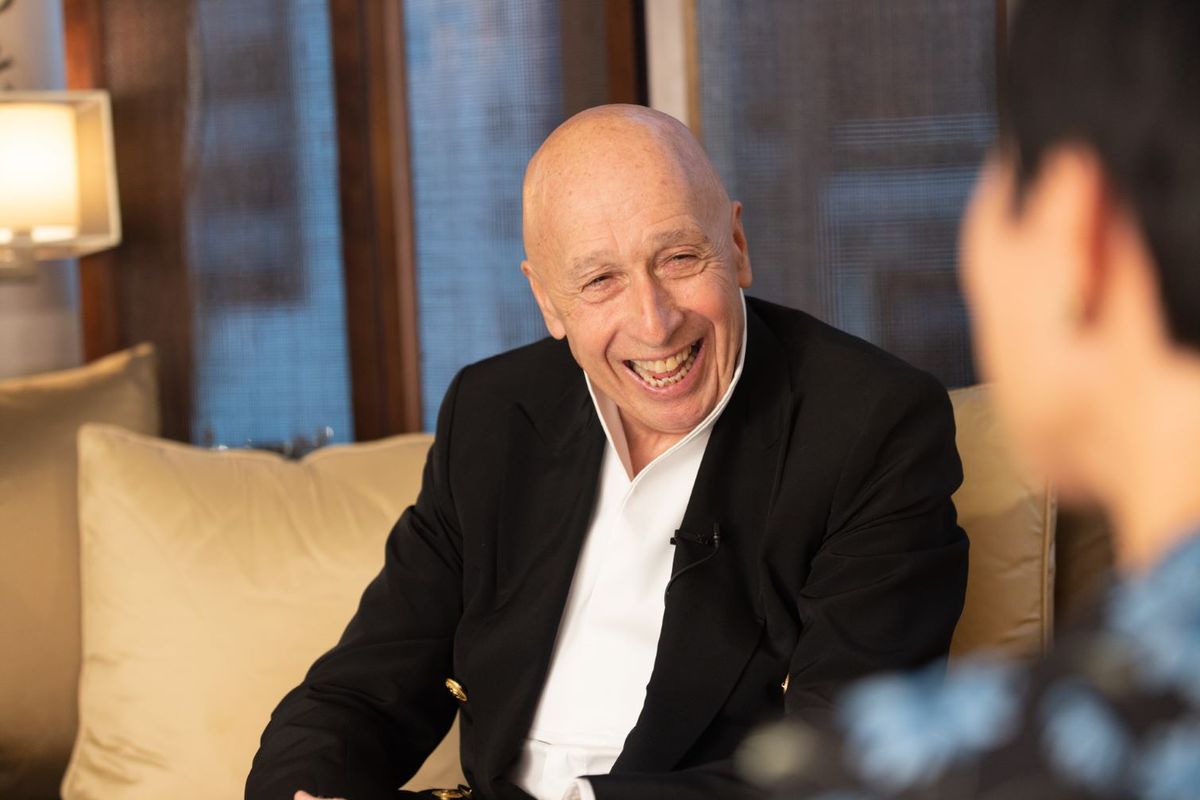



Comments ()